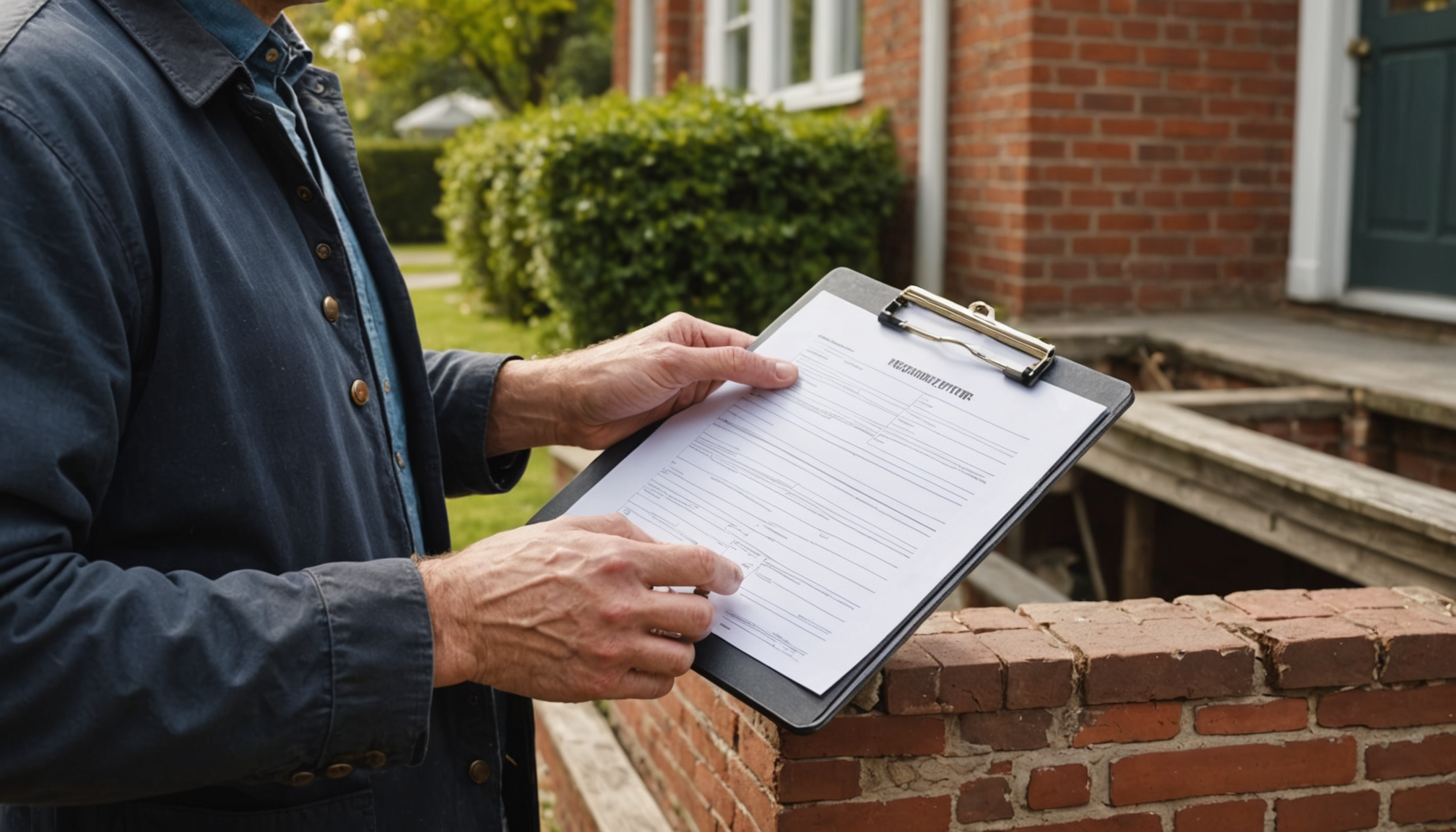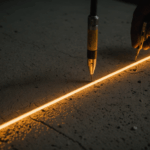In the realm of real estate, the home inspection fee is one of the many considerations tackled by prospective buyers. When embarking on the home buying journey, understanding what comprises the cost of a home inspection is crucial. This section delves into the various elements that contribute to these costs, offering prospective homeowners a clearer picture of what to expect and budget for.
A home inspection typically involves a thorough assessment of a property’s structure and systems, from plumbing and electrical to roofing and foundation. These inspections are critical because they help uncover any potential issues that homebuyers should address before finalizing their purchase. Given the expertise and detail required, hiring a qualified inspector often represents a significant, yet invaluable expense.
The cost for a home inspection generally varies depending on the size and age of the home. Generally, larger homes or those with unique features may demand a more extensive examination, thus, potentially increasing the price. To provide a clearer picture of what buyers might anticipate, consider the data in the table below, which outlines average inspection costs based on home size:
| Home Size (Square Feet) | Average Inspection Cost (USD) |
| Up to 1,000 | $200 – $300 |
| 1,000 – 2,000 | $300 – $400 |
| 2,000 – 3,000 | $400 – $500 |
| Over 3,000 | $500 and up |
The inspection fee also reflects the inspector’s qualifications and experience. Highly experienced inspectors, typically certified and with a strong reputation, might charge more due to their expertise and the added value they bring in identifying potential issues. Furthermore, the scope of the standard inspection itself could enhance costs, especially when additional detailed inspections for specific systems or issues are required.
Moreover, the type of home can also influence the inspection fee. For example, older homes with antiquated systems or historical properties that require careful analysis often incur higher inspection costs due to the additional time and specialized knowledge needed. Prospective homebuyers should account for these variables when planning their real estate investments.
By ensuring they understand these underlying elements, homebuyers can make informed decisions and adequately budget for this essential step in the home buying process. This transparency not only facilitates smoother transactions but also empowers buyers with the necessary foresight to safeguard their investment.
Factors influencing inspection fees
When considering the total cost of a home inspection, several key factors come into play beyond just the basics of size and age of the home. Each of these elements can significantly influence how much you’ll ultimately pay for a comprehensive inspection.
1. Inspector's Expertise:
– The qualifications and expertise of the home inspector themselves are significant determinants of the inspection cost. Certified inspectors who have extensive experience and additional credentials tend to command higher fees. Their in-depth knowledge can be crucial in identifying potential problems that could affect your new home’s value or safety, especially if you’re considering historic properties or those with complex systems.
2. Geographic Location:
– Where your prospective home is located can also impact inspection fees. Urban areas, where the cost of living is higher, often see higher inspection rates compared to more rural locales. Additionally, the prevalence of homes with specific risks (like hurricane zones or areas with a history of termite infestations) can also drive up costs due to the need for specialized inspections.
3. Property Features:
– Certain home characteristics, such as pools, detached structures, or complex HVAC systems, may require additional time and expertise to inspect properly. Each unique feature could necessitate specialized inspection procedures, elevating the overall fee.
4. Market Demand:
– During high seasons for home buying, inspectors might increase their prices based on demand. A busy real estate market often means inspectors are busier and might adjust their pricing to match the volume of requests they receive.
5. Additional Inspections:
– Beyond the standard inspection, there may be a need for more specialized assessments, such as those for mold, radon, or septic systems. Each of these additional inspections often incurs a separate fee, adding to the overall cost. These are usually recommended based on initial findings or due to specific local regulations.
6. Time Allocation:
– The time dedicated to the inspection process is another consideration. More complex properties, or those with significant deferred maintenance, might require additional hours of work. This longer inspection time can increase the overall cost.
Understanding these variables can empower prospective homeowners to anticipate and allocate the necessary resources to cover their home inspection, ensuring they are fully prepared for this critical step in the home buying process. As fees can vary greatly, it is advisable to obtain quotes from several inspectors while considering their qualifications and specializations that might influence the best fit for your particular inspection needs.
Regional differences in pricing
When it comes to the cost structure of a home inspection, one of the less obvious factors is the difference in pricing across various regions. Whether you’re buying in a bustling city or a quiet countryside, location can significantly influence how much you pay for this essential service.
In urban environments, where the cost of living tends to be higher, home inspection fees often reflect this financial climate. Inspectors operating in cities like New York, San Francisco, or Chicago may charge more than their counterparts in more rural areas. This is not only because of the higher living expenses but also due to increased real estate market demands that necessitate a more rapid turnaround and availability from inspectors. Consequently, the pressure to perform inspections promptly and accurately in competitive markets can drive up costs.
Rural and less populated areas, on the other hand, might offer more affordable inspection options. However, it’s important to note that while costs might be lower, the availability of inspectors could be more limited, and accessing services from a qualified professional might require scheduling adjustments. In such regions, inspectors might need to travel greater distances to reach remote properties, which could still impact the overall fee.
Additionally, specific regional environmental factors can necessitate unique inspection requirements, influencing pricing. For instance, homes in coastal regions prone to hurricanes may need inspectors with specialized knowledge about wind and water damage risks. Alternatively, in areas where seismic activity is common, inspectors might charge more for their expertise in assessing earthquake-related vulnerabilities. As such, the need for specialized skills to evaluate these regional hazards can further contribute to pricing variations.
Even within states, local market conditions can affect inspection costs. Areas experiencing rapid real estate growth or increased demand may see price hikes as competition for resources intensifies. Similarly, well-established neighborhoods with older homes might command higher fees owing to the intricate inspection needs typical of aged properties.
Understanding these regional differences empowers potential homebuyers to better navigate their real estate endeavors. By recognizing how location impacts fees, they can make informed decisions and budget accordingly, ensuring they account for any geographic influences on the inspection cost. This knowledge is invaluable for developing a strategy that supports a smooth home buying journey, ultimately safeguarding one’s investment in a new property.
Additional services and their fees
When diving into the intricacies of home inspections, it’s essential to recognize that the base fee for a standard inspection often doesn’t account for the full range of services a prospective homeowner might consider. There are numerous additional services that can be vital, especially if unique aspects of a property require specialized attention beyond the standard examination of plumbing, electrical, roofing, and foundational systems. These extra services can encapsulate various elements and come with their respective fees, potentially impacting the overall budget for this crucial step in your home buying journey.
One common additional inspection is the radon test. Radon is a naturally occurring radioactive gas that can pose significant health risks if it accumulates in a home. Testing for radon is essential in certain geographic areas, and while it typically incurs a separate fee, it’s invaluable for ensuring a safe living environment.
Similarly, termite inspections are often necessary, particularly in regions where these pests are prevalent. This inspection can help detect early signs of infestation that could otherwise go unnoticed but might entail significant structural damage if left untreated. The cost of a termite inspection might be a small price to pay for the assurance it provides in safeguarding your future investment.
Another critical examination involves mold inspections. Mold can affect not only the structural integrity of a home but also the health of its occupants, making it a concern that inspectors address with specialized training and equipment. These evaluations are particularly recommended if there are visible signs of water damage or an unusual odor in the home.
Septic and sewer inspections are also crucial for homes not connected to a municipal sewer system. These inspections require specific expertise to assess the condition of septic tanks and sewer lines, ensuring that they function correctly and do not pose future problems that can be costly to rectify.
As modern homes evolve, additional systems such as smart home technology or solar panels may also require expert evaluation. Given the technical complexity of these systems, having an inspector who can accurately assess them ensures they meet the necessary standards and function as promised.
By accounting for these potential additional services when budgeting for a home inspection, prospective homeowners can ensure a more comprehensive understanding of a property’s condition. It’s advisable to inquire about these options when engaging with an inspector, allowing you to make informed decisions about which additional evaluations are worth pursuing. This way, you’re not only protecting your investment but also securing peace of mind for your future home.
For those in pursuit of capable and qualified inspection professionals, platforms like LocallyFind.com can be an invaluable resource. As a trusted home services directory, LocallyFind.com connects you with experienced inspectors who can help navigate the complexities of these additional inspections, ensuring you have a thorough understanding of your potential new home. With the right guidance and expertise, approaching your home inspection with this breadth of information can make all the difference in your home buying experience.
Tips for budgeting your home inspection
Proper budgeting for a home inspection is essential to avoid unexpected financial strain during the home buying process. Begin by researching typical inspection costs in your area to get a baseline for what to expect. Communicate with several inspectors to get quotes not only on their basic services but also on any additional inspections that might be necessary, such as radon or termite inspections. This proactive approach allows you to compare detailed service offerings and pricing, ensuring you receive the most comprehensive evaluation for your budget.
It’s wise to factor in the potential need for specialized inspections as early as possible. Consider the age and condition of the property when planning your budget. Older homes, for instance, might require more extensive evaluations, thus increasing the total cost. Inquiring about any past issues or updates with the seller can also offer insights into potential inspection necessities.
Engaging with your real estate agent can provide additional clarity on typical inspection fees and services needed in your specific market. Agents often have experience with many transactions and can guide you toward reputable inspectors known for their thoroughness and fair pricing.
Lastly, build a little padding into your inspection budget. Real estate transactions often reveal unexpected costs, and being financially prepared can save you from last-minute surprises. A well-thought-out budget ensures you can tackle any issues uncovered during the inspection without distress, allowing you to focus on the excitement of securing your new home.
In conclusion, home inspection fees are an important consideration in the home buying process, significantly influenced by various factors such as the property’s size, location, and specific features or risks. By understanding the broad range of potential costs and planning accordingly, prospective homeowners can ensure a comprehensive inspection, ultimately safeguarding their investment and fostering peace of mind.


